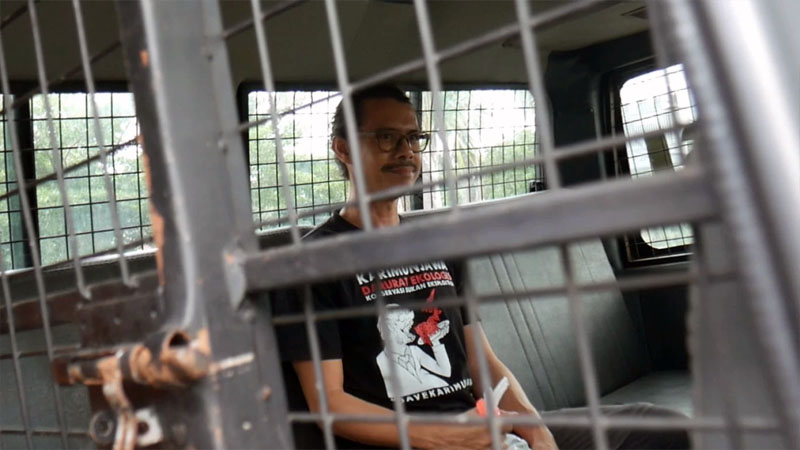Exclusive content

Indonesian environmental activist Daniel Frits Maurits Tangkilisan has been exonerated on appeal from hate speech charges related to a Facebook post criticizing illegal shrimp farms in a protected marine area.
Daniel’s legal troubles began with a Facebook post highlighting environmental degradation caused by illegal shrimp farms in Karimunjawa National Park, a marine protected area. Initially, the Jepara District Court found him guilty of hate speech and sentenced him to seven months in jail and a fine of 5 million rupiah (USD 311). However, the Semarang High Court overturned this ruling, recognizing his defense of the constitutional right to a healthy environment.
Legal Proceedings and Outcomes
The Semarang High Court’s decision, delivered on May 21, quashed the April 4 verdict, which had caused public unrest by labeling Daniel’s environmental critique as hate speech. The appeal judges acknowledged that while Daniel’s statement could be construed as hate speech, it was ultimately a defense of environmental rights enshrined in Indonesia’s Constitution.
Daniel’s case is part of a broader legal battle involving three other activists from the #SaveKarimunjawa movement. These activists, Hasanuddin, Datang Abdul Rohim, and Sumarto Rofi’un, face similar charges for posting a video opposing the illegal shrimp farms. Their cases are ongoing, but Daniel’s exoneration could set a positive legal precedent.
Environmental and Legal Context
Karimunjawa National Park, declared a national park in 2001, covers 1,100 square kilometers and is known for its rich marine biodiversity, including nearly 500 species of reef fish. Despite regulations, illegal industrial shrimp farms have proliferated, causing significant environmental damage.
The 2008 online speech law under which the activists were charged has faced widespread criticism for stifling dissent and being used by state and business interests to silence critics. In December 2023, revisions to this law were passed, demanding stronger proof in defamation cases, a move aimed at protecting free speech.
Human Rights and Environmental Advocacy
Human rights organizations argue that the legal actions against these activists contravene international standards, including the International Covenant on Civil and Political Rights (ICCPR).
From 2019 to 2022, Amnesty International documented numerous assaults on human rights advocates in Indonesia, with environmental activists frequently targeted. Similarly, Auriga Nusantara reported significant persecution of environmental defenders from 2014 to 2023, with strategic lawsuits against public participation (SLAPP) being the most common tactic.